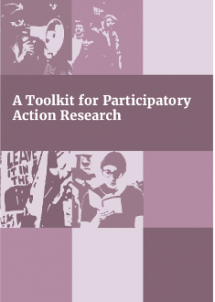Resource information
This Guide is drawn from experience in the action research project “Bottom-up accountability initiatives and large-scale land acquisitions in Africa”. The project aimed to bring the international soft law instrument, the Voluntary Guidelines on Responsible Governance of the Tenure of Land, Fisheries, and Forests (the Tenure Guidelines or TGs), to rural communities and, together with them, to use the Guidelines to strengthen their tenure of land, fisheries and forests.
The ultimate goal of the project was to bring about bottom-up accountability in the context of large-scale land acquisitions in Africa. By looking at tenure challenges, and what the impacts of change are on different people (gender, generation, ethnicity, class), it was possible to identify sections of the Tenure Guidelines that were relevant to each case study. However, collecting and understanding this type of information requires a good understanding of decision-making and governance roles at local district, provincial and national level. The project sought, especially, to produce policy-relevant knowledge on how to promote legitimacy and accountability of public authorities.
The project therefore required design and methods that would allow and enable the production of high-quality outputs, while at the same time as bringing about change for the communities involved. This Toolkit is an adaptation of the Guidance Note developed in the course of the project to assist each partner in choosing methods of research and action best suited to their context and goals. The Toolkit addresses how to ensure that project outputs are rigorous and cannot be seen to be biased, or based on the perspectives of certain interest groups. A key technique for doing this is “triangulation”: the process of checking your facts and versions of events against those form different people and institutions. This Toolkit introduces several techniques for triangulation.
Taken together it is hoped that the theoretical frameworks, techniques, and exercises contained in this tool kit can help communities and researchers in a variety of contexts to produce research results which are suitable for publication and acceptance as evidence, and which can therefore be taken seriously in future advocacy work. Ultimately, the goal of this Toolkit is to help users to produce outputs which are politically relevant and useful.

